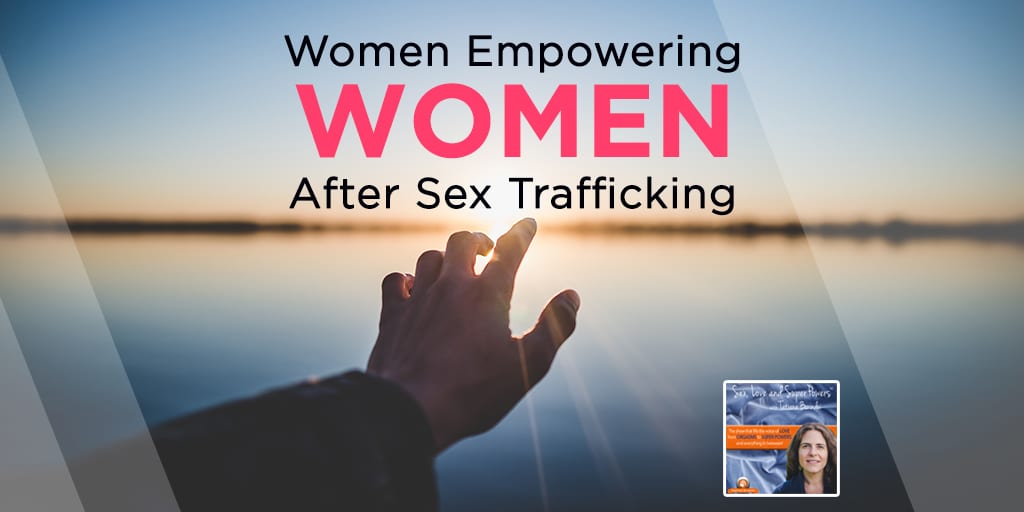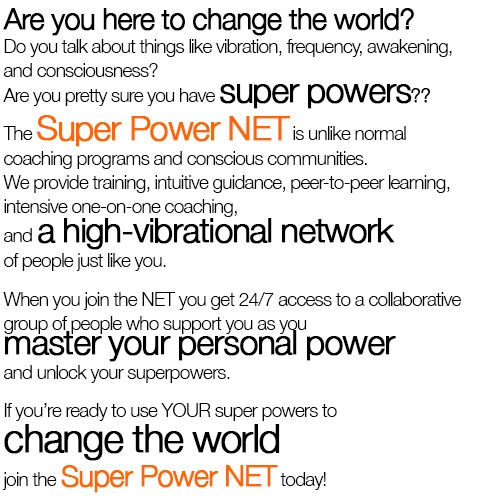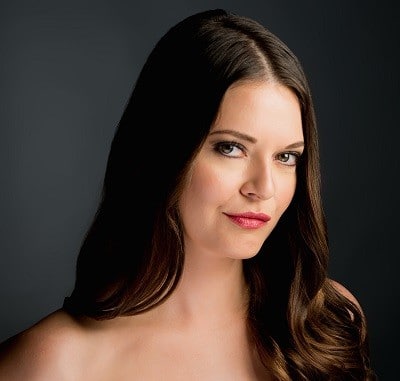
Hello everyone, and welcome to the Sex, Love and SuperPowers podcast show. I am your host, Tatiana Berindei, and today I have a very special guest with me, Brooke Axtell, and we are going to be discussing women empowering women after sex trafficking.
Let me tell you a little bit about Brooke before we get started. Brooke Axtell is the founder and director of She is Rising, a healing community for survivors of gender violence and sex trafficking. Her work as a human rights activist led her to speak at the 2015 Grammy Awards, the United Nations, and the US Institute for Peace. She has been featured in many media outlets, including The New York Times, LA Times, Rolling Stone, Time Magazine, Wall Street Journal, The Steve Harvey Show, and CNN. She’s an award-winning performance poet, singer/songwriter, and the author of the memoir, Beautiful Justice.
Welcome to the show, Brooke.
Thank you. It’s a pleasure to be speaking with you today.
Before we dive in, will you tell our listeners what your super powers are?
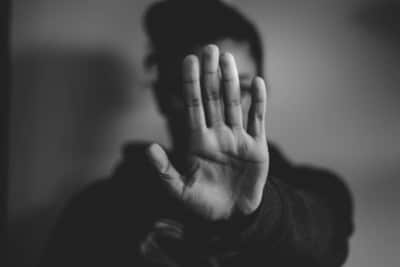
I’ve had the opportunity to face many challenges in my life and through those challenges I’ve found a deep well of strength and creativity.
One of my super powers is my creative resilience. I’ve had the opportunity to face many challenges in my life and through those challenges I’ve found a deep well of strength and creativity. I believe that trauma and loss and the grief that we face in life is an entry point into knowledge, and all of that knowledge is a form of power that we can bring into the world to make it a more compassionate place. I see that creative resilience and that capacity for alchemy as one of my super powers.
Yeah, I love how you call it alchemy, because I really do believe that is the truth of that process when we really give ourselves over to it. Yeah, beautiful. Thank you so much. I would love for you to share with our listeners about this organization, this healing community that you have founded call She is Rising.
I would love to. I founded She is Rising because I believe in the unconditional worth of women and girls, and I have seen the way that violence, all forms of gender-based violence from sexual assault to domestic violence to sex trafficking, communicates the message that our voices and our desires don’t matter. And I wanted to create a community where I could hold a vision for women and girls in recovery that goes beyond just survival into leadership and encouraging women and girls to really see themselves as the artist of their own lives, as changers, as creators. And to move beyond a traditional social service model so that over long term recovery and healing, that we could really tap into and celebrate the unique gifts and passions that women and girls have. And to support them in fully expressing those gifts in their long term recovery.
I felt like there were so many agencies that were really focused on the crisis phase and although we do need that crisis response in terms of direct intervention and shelter, I felt like there was a piece of the conversation that was desperately missing. Which is really holding a higher vision for our leadership in the world.
Yeah and for the possibility for that alchemy and that transformation that you spoke to just a minute ago.
Absolutely.
There’s something when we stay in crisis response, we can keep people stuck there.
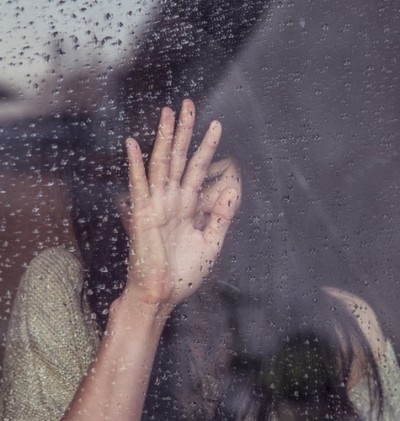
I think trauma disrupts our connection sometimes to that truth of our inherent wholeness, but I believe we can reconnect with that and remember that.
Yes. I think one of the things that I encountered, which was so painful, was that I was seeing both for myself and my own recovery and for my community, there was this narrative of survivors being so traumatized. The story was that we were sort of desperately broken and that maybe one day, if we tried hard enough we might have some semblance of a normal life, and I really wanted to challenge that notion that we were somehow fundamentally broken. I wanted to be able to hold a vision for our inherent resilience and wholeness. And I think trauma disrupts our connection sometimes to that truth of our inherent wholeness, but I believe we can reconnect with that and remember that. And I wanted to move beyond that story of brokenness and victimization and survival to what it means for us to thrive.
Yes, thank you. Thank you for doing that. Just so much yes. I’m getting choked up just thinking about it and with the gratitude that I have for you in the world and for the importance of speaking that message. What do you see as the difference? From a very practical boots-on-the-ground application, what are the ways that She is Rising is different from traditional organizations? I mean, you’ve shared with us the philosophy, and how do you actually go from an experience like that to understanding your own wholeness and your resilience?
I think the pragmatic piece is just beginning the conversations with survivors from a standpoint of always looking for what is the strength here, where is the resilience, what is the passion that this person has even if they’ve just emerged from sex trafficking. For instance, if I’m meeting with a young woman for the first time and we’re sitting down for coffee, I don’t ask her to tell me about her trauma. I know that she will share pieces of that with me when she’s ready. What I’m more curious about is what does she desire, what is her vision for her life, what lights her up, what are the things that she would love to explore.
Because I think if I can reflect that to her, the authentic pieces of her identity, and to help her remember that she is not the story of her trauma, that she’s the storyteller, and she gets to decide the kind of woman she wants to be in the world and the story she’s going to tell about her life. Then by doing that I’m essentially setting the tone for a different way of engaging with recovery, so as she’s navigating services, as she’s looking at what she might want to do to build a new life, she is approaching it from a different vantage point. Everything is then seen through the lens of, “How do I want to bring my voice into the world? How do I want to step into leadership?”
And so in a concrete sense, pretty much I’m listening from the very beginning for those signs of what lights her up, how does she want to express her creativity, and then what are the practical gifts that I can give through resources, through mentoring, through leadership opportunities, to help her live that out. Really tailoring the entire response around the resilience and the strength rather than fixating on the details of the trauma, and what I found is that over time, the pieces of the trauma that need to be surfaced and need to be highlighted and healed will come. And then I will match her with whatever she needs to process that.
But I think if we fundamentally view people and treat people as if they’re victims and as if they’re broken and they need to be saved and rescued, then we’re really missing the mark because we’re essentially dehumanizing people. And when someone has come out of this violence, which is inherently dehumanizing, we need to be really mindful of the fact that our response is not also replicating that dehumanization. So if I know that you’ve been through a certain kind of trauma, and I fixate on that, and I make our conversation about that to the exclusion of all these gifts and passions, then I’m not actually going to be able to concretely build out a response. That’s based on your full humanity.
And so, I mean, just in pragmatic terms, sometimes that just looks like as I’m listening, as I’m asking questions, that I’m matching young women with the exact kind of mentorship they need to develop their gifts and passions, creating economic opportunity, work opportunity, educational resources. Whatever it is that’s going to help her build that out. You know, I don’t have a set program that every single person goes through because I feel like it’s so important for her to clearly define for herself and articulate what her vision of a beautiful life looks like.
And then I get to come alongside her and help build that out, and even in retreats where I’m working in groups, I’m always trying to bring in different experiential opportunities for them so that they have the ability to embody and to see what their unique path to leadership might be. So that maybe they want to pursue something in the arts and media or they want to pursue something through policy, but whatever it is, I try to get them a direct embodied experience where they can see that their desires matter. And that recovery should be built around their desires and their pleasure, that there’s nothing more revolutionary coming out of trauma to center your life and your own pleasure and your own desire.
So well said. We have to go to a quick break. Before we do, will you tell our listeners where they can go to find out more about you and your work?
I have a couple of spaces where you can follow me. BrookeAxtell.com is my website, and then I’m also on Instagram and Facebook. And then SheisRising.org. She is Rising on Facebook is also a good spot.
Awesome. We’ve been talking with Brooke Axtell about women empowering women after sex trafficking. More when we get back. Stay tuned.
To listen to the entire show click on the player above or go to the SuperPower Up! podcast on iTunes.
Music Credit: All instruments played by Amanda Turk. Engineered and produced by Tatiana Berindei and Daniel Plane reelcello.com
Podcast: Play in new window
